Have you always loved the look of custom leather? Leather products are some of the most durable fabrics that are available in fashion, but they are also some of the most difficult to create. Leather is a thick, resistant product that can easily break your needle, especially if you work with a complicated stitching pattern!
On the other hand, using leather in your creations can be very rewarding as you can create one-of-a-kind masterpieces. Plus, it’s a wonderful way to learn new skills and become a true professional in sewing. So, how do you find the best sewing machine for leather?
The good news is that many sewing enthusiasts and long-time hobbyists sew leather on a standard home sewing machine using a specifically designed needle and foot. But, not every machine will get the job done. If you plan to sew with leather, we recommend buying a unit that’s designed to handle tough materials.
Trying to distinguish the workhorses from the wimps can be tricky, considering the massive amount of products currently available on the market. To make things easier for you, we did extensive research and hand-picked the best performing sewing machines for leather. Keep reading to find your perfect match.
The Best Sewing Machine For Leather: 2020 Reviews
How can you find the best sewing machine for leather that will meet all of your needs? The chart below is a great place to start! The top products in this category can be quickly compared so that you can find the best equipment possible right now.
Best Overall: Janome HD3000

We believe that Janome HD3000 is the best sewing machine for leather, and any other tough material for that matter, as it’s a well-rounded product capable of delivering professional results with little effort. The machine is reliable, sturdy, and incredibly precise, without being overpriced, which makes it an ideal choice for professionals as well as new hobbyists.
Reasons to Buy:
Sturdy Construction. We love the Janome HD3000 because it has a sturdy construction and a heavy-duty metal frame, which means you can feel confident while working with tougher materials. The machine will stitch precisely, without any movement whatsoever, even at high speeds.
Speed. When talking about speed, we have to praise the 860 stitches per minute, which is more than typical home sewing machines, giving you the ability to work on large pieces without spending countless hours on them.
Features. The unit is rich in beneficial features which will make sewing with leather much easier. Some of these features include an auto needle threading, 1-step buttonhole, adjustable presser feet pressure, and reverse stitch button. The adjustable presser feet pressure means you’ll be able to adjust the pressure needed to hold the fabric, which is especially useful, as the required pressure varies greatly from light to thick fabrics.
Versatility. Aside from the presser feet pressure, with Janome HD3000 you can also adjust the stitch length and width from 4mm to 6.5mm, depending on the project you’re working on. On top of that, the Janome HD3000 gives you enough space to use clips or tapes as you’re sewing to keep the materials together as your project takes form.
Ease of Use. Thanks to all of the automatic features, the Janome HD3000 is one of the easier machines to master, which makes it a great choice for sewers who are just starting out and are still learning to sew with tricky fabrics, like leather.
Reasons not to Buy:
Loud. One drawback some customers have noticed is that the Janome HD3000 gets quite loud on light materials, which you should keep in mind, especially if you’re buying it for home use.
Wasted Thread. Also, we noticed that the thread cutters are not positioned optimally, which can result in wasting thread in the long run.
Best On A Budget: SINGER Heavy Duty 4411

While most heavy-duty sewing machines are a considerable financial investment, the Singer 4411 model is a rare find, as it represents an inexpensive, strong, and very effective sewing machine. It can easily take on leather and other heavy fabrics without struggling. It’s the perfect budget and beginners-pick.
Reasons to Buy:
Powerful. Singer 4411 is fast and powerful. The motor has a 105W power, which is not much but it’s more powerful than other sewing machines in the same price range. Most entry-level, home sewing machines have around 60-80W motor power. Consequently, the Singer 4411 can easily handle thick fabrics like leather and is less likely to overheat when working on large projects.
Speed. What’s more, it comes with an astonishing speed that goes up to 1,100 stitches per minute. Just for comparison, our top choice as the best sewing machine for leather has 860 stitches per minute. For many, the speed of Singer 4411 might even be too much, but it’s a great feature to have, especially for more experienced sewers.
Bobbin System. Another feature we love is that the bobbin system is drop-in/top-loading. This mechanism is very handy and convenient. Plus the Singer 4411 comes with a clear plastic cover, so you can keep an eye on your bobbin at all times.
Warranty. Finally, you’ll be happy to know you would be getting amazing value for your money. Singer as a brand offers an excellent warranty of 25 years on the head, which is more than most brands in the industry.
Reasons not to Buy:
Less Features. We don’t like that Singer 4411 comes with only 11 in-built stitches, which is less than all of our other recommendations. That being said, that’s not exactly a bad thing for sewing leather, but it’s still limited and that’s something you should keep in mind when making a decision.
Less Versatility. Also, this sewing machine is not suitable for the creatives as it’s designed with heavy-duty tasks in mind, instead of embroidery or dressmaking projects.
Best Heavy Duty: SINGER Heavy Duty 4423

Another gem from the Singer brand, the Heavy Duty 4423 is a true workhorse able to quickly and easily sew through leather, canvas, and denim. Well-built, stable, and precise, the Singer 4423 is an ideal choice for experienced sewers, professionals, and anyone working with tough fabrics on a regular basis.
Reasons to Buy:
Sturdy Construction. Singer 4423 feels just like a high-end sewing machine should feel. The machine has a sturdy construction which makes it heavy and very stable. Plus, it comes with a heavy-duty motor with great piercing power. In other words, it easily pierces through a couple of layers of a thick material like denim and leather.
Speed. Best of all, all of your projects will be sewn very quickly. Singer 4423 has a maximum speed of 1,100 stitches per minute, which is impressive. It’s also good to know that you can easily adjust the speed with a foot pedal. Simply, touch the pedal more lightly to slow the sewing, until you’re ready to go full speed again. Having full control over the speed is essential when working with leather which is delicate and a wrong stitch leaves a permanent, visible hole.
Versatility. We also love that Singer 4423 comes with 23 different built-in stitches, including basic, stretch, decorative, and buttonhole stitches. Thinking of an exciting new project? Chances are Singer 4423 has just the right built-in stitch you can sew with. You can easily create beautiful pieces in fashion, home décor, quilts, crafts, and more.
Features. Singer 4423 is also rich in features, like the automatic needle threader and the buttonhole sewing function. Quilting features are not unaccounted for either – they will expand your sewing options and give you the freedom to make unique pieces, leather, or otherwise.
Warranty. Just like the Singer 4411, the more expensive Singer 4423 also comes with the 25-year limited warranty. When you’re investing in a high-quality machine, having a great warranty becomes a key aspect.
Reasons not to Buy:
Learning Curve. While setting it up was easy, the manual was a little hard to figure out, which can be overwhelming for beginners.
Power Compatibility. Another concern is the seller you’re buying the machine from and the destination country. Make sure the power outlets are compatible between the seller’s country and your country. Some people have reported problems with the machine because of the incompatible wattage.
Best For Thick Material:
As another high-quality sewing machine specifically designed to sew through heavy garments, we recommend the TOYOTA J34, suitable for anyone working with leather, denim, and canvas on a daily basis. Equipped with incredible penetration power and a bunch of useful features for thick fabrics, TOYOTA J34 can quickly become an indispensable tool for making one-of-a-kind masterpieces.
Reasons to Buy:
Versatility. Winning over the competition with 34 built-in stitches, the TOYOTA J34 is a versatile and effective sewing machine that will give you a lot of freedom to create amazing leather, denim, and canvas pieces, as well as other lighter-material projects. Thanks to the 34 options, you can choose from a utility, stretch, blind hem, decorative, applique, overlock, 4-way smocking, triple reinforced straight stitch, and a triple reinforced zig-zag stitch.
All Threads. Plus, experienced sewers have said they’ve used regular, nylon, and jeans top-stitching threads with this machine without any problems, which is great news for anyone that wants a stronger-held stitch (needed for many leather and denim projects).
Thick Materials. We love the TOYOTA J34 because it was designed with heavy fabrics in mind. In fact, it has a unique and exclusive gliding foot which is said to go over multiple layers of leather and denim easily. According to the manufacturer, the TOYOTA J34 can smoothly glide from 3 layers, to 6 layers, or to 12 layers of denim without missing a stitch.
Versatility. Additionally, it features an adjustable presser foot pressure and an automatic needle threader. While the automatic needle threader will save you time and make things easier, the adjustable foot pressure is extremely beneficial for thick materials as you can set the pressure to fit the fabric you’re working with, enabling smooth sewing.
Reasons not to Buy:
Loud. One frequently mentioned drawback of this machine is that it’s loud due to gearing power.
Still not Industrial. Also, some customers have been disappointed because they expected an industrial-scale sewing machine. So, we should mention that TOYOTA J34 is not an industrial sewing machine and will be lighter with some plastic parts.
Conclusion:

The best sewing machine for leather that can please most people is the Janome HD3000 model, which represents a great balance between stability, power, and price. The machine comes packed with a lot of features that will make sewing on tough fabrics very easy. The adjustable length and width of the stitch is another convenience you’ll get when buying this sewing machine. Regardless of whether you’re a professional or just starting your sewing journey, you can’t make a mistake with the Janome HD3000.

The SINGER Heavy Duty 4411 heavy-duty sewing machine is a great option for those with smaller pockets as it’s a rare and valuable find. It’s a highly effective machine for easy sewing through thick and heavy fabrics, although creatives might not be very satisfied with it. Singer 4411 is fast, powerful, and easy to use. Plus, it comes with an incredible warranty, which guarantees you’ll be using the machine for a long time.

When looking for the best quality, look no further than the SINGER Heavy Duty 4423 sewing machine. Built by one of the most trusted and recognizable brands in the industry, the 4423 model comes with strong and durable construction, as well as excellent power and automatic features making sewing a pleasant experience. It can easily handle thick materials, which makes it a great choice for sewing leather.
Specifically designed having denim and leather in mind, the is the ultimate choice when you’re mostly working with a variety of thick materials like leather, denim, and canvas. It’s sturdy and powerful, with unique features that make the model stand out from the competition. Anyone who’s working with thick materials on a daily basis would benefit from choosing the TOYOTA J34.
Do You Need a Leather Sewing Machine?
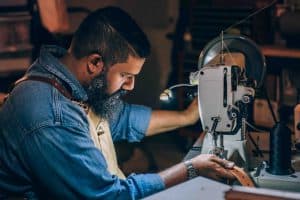
Leather also tends to stick to the presser foot or the throat plate of most standard sewing machines. Although you can sometimes get away with putting a piece of scotch tape over the bottom of the foot, most machines aren’t going to accept the thickness of the material. The leather will either stick underneath the foot or you’ll just get a stuck needle that has created a problematic permanent hole.
The best leather sewing machines feature a longer stitch length option. The longer stitches are better for leather because it will provide a stronger, more secure seam.
Even if you’re using a faux leather product, the same rules apply when sewing this type of material. When in doubt, use a scrap of the material you intend to use and test out how your sewing machine will react to it. This is actually a piece of good advice; you should practice before the start of every new project, to get the feel of how your machine interacts with the fabric. If the sewing machine you have won’t let you sew the materials, then you’re in need of an upgrade to the best leather sewing machine to finish off your project.
What Are the Basics of Leather Stitching?
The key to a good sewing experience with leather is to follow your thread tension very carefully. Standard sewing machines will automatically try to adapt with a tighter stitch and that might cause the thread to break. You can undercompensate on a manual machine and cause the stitch to ruin your leather. That’s why having the best sewing machine for leather is a tremendous benefit.
Stitching with leather also means needing new needles constantly. The leather will dull the point of the needle after some time and you’ll end up either breaking the needle, jamming your machine up, or ruining your product – if not all three! Always change your needle before starting a project and when you reach a natural stopping point, change your needle.
When trying to sew leather products, you’ll find more success by using a synthetic thread instead of a cotton thread. Nylon and rayon are typically going to be your best options, but a polyester of upholstery weight can work as well. If your leather won’t slide even with your leather-specific machine, some baby powder can help you get there.
Are Residential Models Good For Leather Sewing?
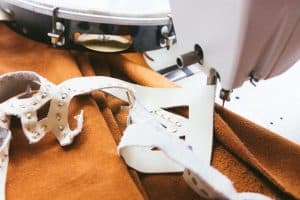
If you need to sew anything thicker than this, then you will want to invest into an industrial leather sewing machine. This also means you’ll need to have a servomotor and a table with the machine to finish off your project. The advantages of upgrading to an industrial machine will give you some additional options for all of your projects. For example, the maximum stitch length is upgraded from 4-6mm to 8-10mm, while stitching speeds can reach up to 2,500 stitches per minute. And, best of all, you won’t need to take breaks while sewing to allow your machine to cool down.
Purchasing an industrial sewing machine is expensive and requires commitment. Unless it comes with an automatic lubrication feature, you’ll need to oil the components of your new machine after every session. Plus, you’ll also need to oil it after a few days of it not being used. On top of that, it costs a lot more than a residential machine, so you should think long and hard whether you really need an industrial scale sewing machine.
Unless you’re a professional sewer who’s working with leather on a daily basis, residential machines will do great for your light leather projects.
How Do I Find the Best Models For Leather?
The first stop on your shopping journey should be to check out our best sewing machine reviews. These reviews are created to help you sort out what specific models are suitable for your leather product. You can quickly find the features, advantages, and disadvantages that you can expect from each product, and then you can eliminate or choose a machine based on all of the information you’ve gathered.
When reading about each sewing machine, you’ll want to take a look at the strength of the needle that a machine can accept. Although most needles will work for leather when the point is sharp enough, there are some machines that feature a very thin needle that can easily break under higher pressure. Look for stitch adjustments as well, so you can maximize the strength of your sewing. This is a dial command on lower-end models and a push-button feature on high-end models.
Some sewing machines won’t accept synthetic threads. If they do, then you may need to use a vertical spool instead of a bobbin in order to achieve the right results. Look for this option in particular when looking for a leather-specific sewing machine and you’ll be able to create stunning items – even ones that aren’t leather-based!
What Are the Prices?
If you’re just planning on using thin leather or faux leather for your next project, you could make do by using a standard sewing machine with the tips included in this article. In that case, you can expect to pay around $250 for a high-quality, entry-level sewing machine.
For thicker leather products, you’ll need a machine that has more heavy-duty features. This will increase the costs by at least 25%, if not more. The average price for a sewing machine with a fair amount of features and a high footer is generally around $500.
Top of the line sewing machines that can handle leather will top out at $1,500 or so on a website like Amazon. Your local dealer may have a 20% upcharge or more on any of the prices that are listed here, so keep that in mind as you shop!
Before You Leave
Sewing with leather is hard and requires you to have good sewing skills before taking up your first leather project. However, even with extensive experience, you won’t be able to make professional and high-quality pieces without a solid machine designed to handle thick and resistant fabrics like leather.
Hopefully, our in-depth reviews of the best sewing machines for leather will help you make an informed decision. Feel free to check out the links we’ve provided to find out current prices, detailed product specifications, and customer reviews. Everything you need to find a high-quality sewing machine from a trustworthy brand is within your reach.
On top of that, our buying advice can guide you further into your shopping experience, and if there’s anything more you want to know about sewing, visit our blog. We regularly write about useful sewing tips and tricks, as well as current trends and products, so you’ll never miss out on anything.
Last update on 2025-03-31 / Affiliate links / Images from Amazon Product Advertising API
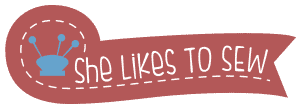
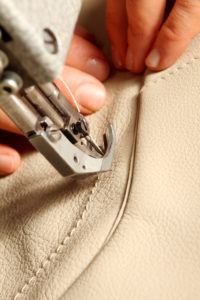


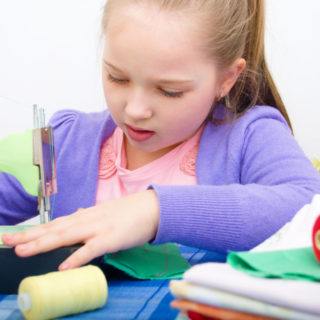
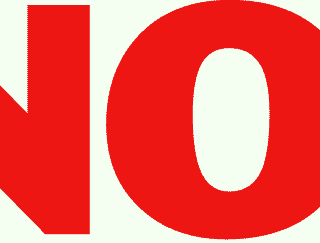
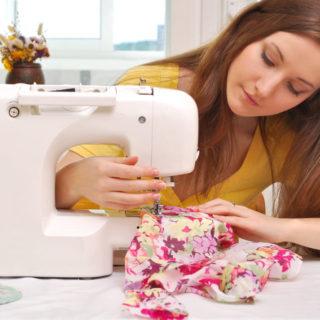
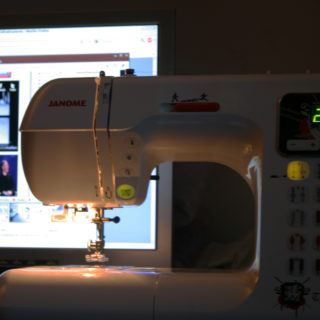
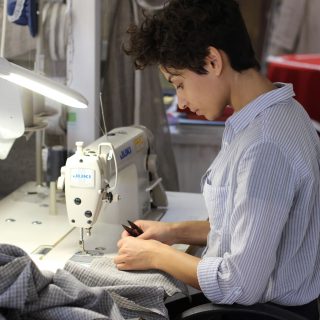
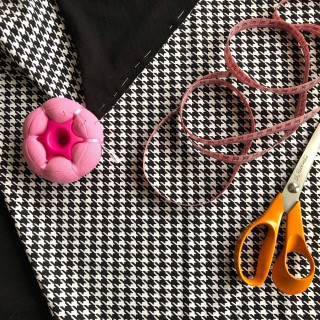
Elizabeth Lemmenes
Would you ever recommend sewing faux leather using the older/old school machines made in like 1900’s? Machines that were made with almost all metal components and outer casing? Ones that are just more durable than some machines made today?
Kristina Pearson
Some of my friends have done this without any problems. I wouldn’t undertake too big of a project without the right machine, but a small repair would be fine.